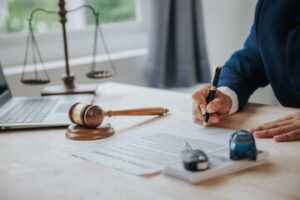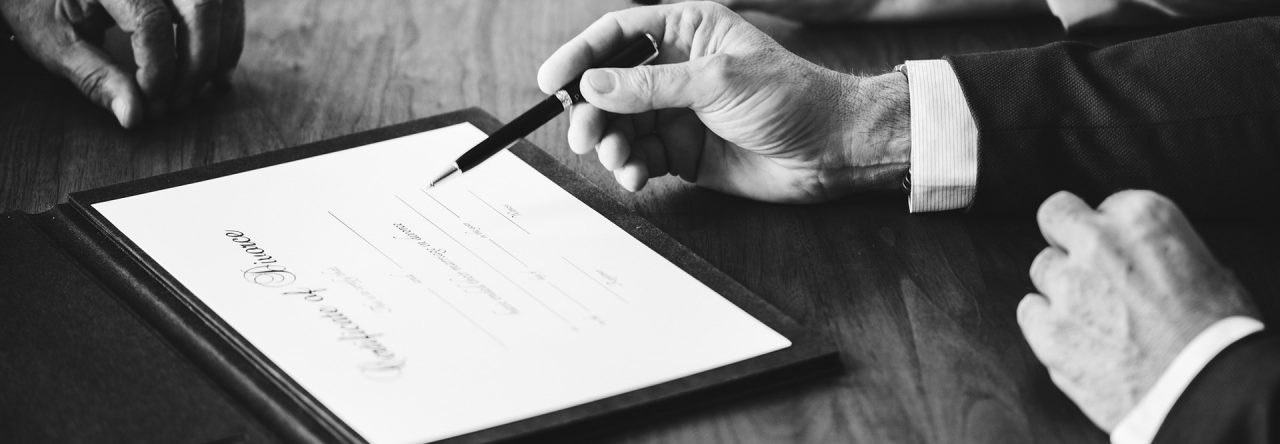Car accidents can be frightening. They can also be stressful when you have medical expenses and car damage to resolve. First, check yourself and any passengers for injuries. If anyone is injured, call 911.
Get the names, contact information, insurance policy information, and license plate numbers of all drivers involved in the accident. You should also take photos of the scene. Call Car Accident Lawyer Duluth immediately after calling the authorities.

Call The Police
Unless your injuries are minor and you can get out of your car safely, you must call the police. They will file an official accident report, speak with witnesses, and take other steps that are crucial to the success of your personal injury or property damage claim.
When you call, you should be polite but direct with the officer. Tell them the facts of what happened, including whether you think the crash was your fault or not. Do not argue, place blame, or accuse the other driver of causing the accident. This is an issue that will be settled by the police and your insurance companies.
Make sure that you have a camera or cell phone with you to record the accident scene. Take pictures of the cars and their damages, the road and surrounding areas, and any other items that you believe will help your case. If you have any witnesses, try to get their names and contact information.
You will also want to exchange information with the other drivers. Do this only if it is safe to do so and if you can remain calm. If you can do so, ask for their name, address, phone number, insurance company, and policy number. Obtaining the license plate number is helpful as well.
It is important to get as much evidence as possible at the scene of the accident to provide to your insurance company and any other parties that may be involved in your claim. This will help you to receive the maximum compensation for your losses and damages.
You will probably be contacted by an insurance adjuster, either from your own or the other driver’s insurance. You should never speak to an insurance adjuster without first speaking with your lawyer because any statement you make could be used against you later in court or in the course of settling a car accident claim. Your lawyer will review any documents, photographs, or other proof that you have before you talk to an insurance adjuster so that you are prepared for what you will say.
Exchange Information
Tempers can flare up after car accidents, which can lead the other driver to withhold information. This is why it’s so important to stay calm and only provide the police with the information they request. Your statement can be used against you later on by the other driver or their insurance company, so it’s best to keep things civil and stick to the facts.
Make sure to get the names and contact information of all parties involved in the accident, including drivers, passengers, and witnesses. It’s also a good idea to get their vehicle information, including year, make and model, color, license plate number, and insurance policy number. If you have a smartphone, use its camera and video features to record the scene of the accident. This can include damage to vehicles, skid marks from the crash, and anything else that could help identify the fault.
As soon as the scene is safe, do a quick inspection of your vehicle for any property damage. This can help you determine the extent of your injuries and what type of coverage you’ll need, whether it’s a collision claim or uninsured motorist coverage.
If you’re injured, don’t hesitate to seek medical attention at the ER or urgent care clinic. This will not only ensure you receive any necessary treatment, but it will also create a record of your injuries in case they become more serious. Even if you feel fine at the time of the accident, it’s a good idea to see your primary care physician as well. He or she may order tests that will reveal any potential injuries you weren’t aware of at the time of the crash.
You should also report the accident to your insurance company as soon as you’re able. Your insurance policy probably requires you to notify them within a certain period after the crash, so it’s better to be safe than sorry. You can find your insurance company’s phone number on your policy card or online. Be sure to report your accident to the insurance company for the other driver as well.
Exchange Insurance Information
Whether you’re using your cellphone camera or just writing down information with pen and paper, collect the name, address, phone number, insurance company, policy number, driver’s license number, make, model, and license plate numbers of the other driver(s) and vehicle(s). In addition to ensuring that you get all of the driver information, be sure to note any defining characteristics such as specialized wheels, tinting, decals, or windows that may be present on a car to quickly identify it.
During this time, try to stay calm and be civil to the other drivers, even if you feel angry. Remember that anything you say can be used against you later. Especially after a car accident, emotions run high and you might not be thinking clearly. If you are asked to give an account of what happened, stick to the facts and don’t say anything that could be construed as admitting guilt or fault.
If it’s safe to do so, ask for the contact information of any witnesses who saw the accident. They may be able to provide valuable testimony later on in court or during an insurance claim.
As soon as possible after the accident, get medical treatment for your injuries or those of anyone else involved in the crash. Don’t wait to do so as it can negatively impact your ability to receive proper care and the strength of your case.
Once you’ve received any necessary medical attention, it’s important to keep detailed records of all of your expenses related to the accident. This includes everything from your medical bills and lost wages to your vehicle’s repair costs and other accident-related losses.
It’s also a good idea to take the time to review your car insurance coverage before getting into any type of accident. This way, you know how your policy will cover you and what your options are if the other driver files an uninsured motorist or collision claim against you.
Contact An Attorney
The best thing to do after a car accident is to call an attorney as soon as possible. Your lawyer can help you gather the information and evidence needed to file an insurance claim for your damages. Often, the more evidence you have to support your case, the higher the compensation you may be entitled to receive.
A lawyer will also review any police reports generated after the crash and ensure all information is accurate. If there are any discrepancies, they can work with the police department to get them corrected.
In addition, a lawyer can help you avoid saying anything that could damage your case. This is important because an insurance adjuster from either the other drivers or your own company will try to use what you say against you. For example, if you discuss your injury or what happened during the crash, it could be used to deny your claim.
You should also not volunteer any information regarding the coverage limits on your policy or get into a discussion about who was at fault for the accident. This type of information can be used to lower your settlement or even make it impossible to get the compensation you deserve.
While on the scene of your car accident, take pictures of the vehicles involved, the position of each other cars, any visible injuries, skid marks, etc. These photos will provide valuable evidence for your legal claim.
If you can do so, try to talk to any witnesses that may have seen the accident occur. Get their name and contact information and record any statements they may make. You should also ask them to write down any details they remember about the incident. Also, if there are any nearby cameras, you should ask if you can get a copy of the footage. Finally, you must follow your doctor’s treatment plan as closely as possible. If you fail to do so, you could experience chronic, permanent injuries that will greatly impact your quality of life.
